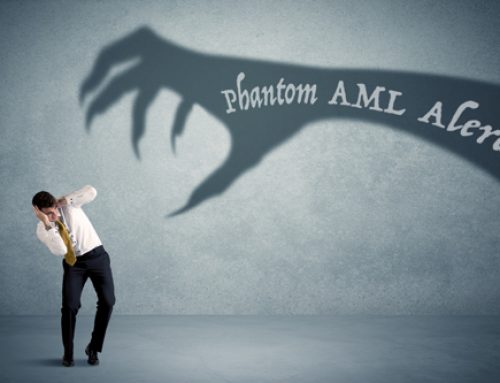 Bank Secrecy Act (BSA) compliance can be one of the more difficult areas of compliance. Even if you feel like you’ve got a pretty good handle on all the requirements, it’s likely you’re still going to have a few questions, especially when the scenarios get a little more complex (just like in real life). That’s where we come in. Without further ado, here are the answers to your top six BSA questions.
Bank Secrecy Act (BSA) compliance can be one of the more difficult areas of compliance. Even if you feel like you’ve got a pretty good handle on all the requirements, it’s likely you’re still going to have a few questions, especially when the scenarios get a little more complex (just like in real life). That’s where we come in. Without further ado, here are the answers to your top six BSA questions.
Question 1
Facts:
- William Jones is a 25% owner of Strongwell, LLC and there are no other owners of more than 25%. Mr. Jones is also the primary individual in control of Strongwell, LLC.
- William Jones is a 30% owner of Far Flung Adventures, LLC and there are no other owners of more than 25%. Again, Mr. Jones is also the primary individual in control of Far Flung Adventures, LLC.
- Strongwell, LLC had a cash deposit of $8,000 on 9-25-2017 made by a Susan Moran.
- Far Flung Adventures, LLC had a cash deposit of $7,000 on 9-25-2017 made by Esther McMann.
Does a CTR need to be filed for the two transactions based on the Beneficial Ownership Rules?
Answer:
Although the potential for CTR filing is increased, the Beneficial Ownership rules do not mandate CTR filing based exclusively on the presence of a common ownership. Rather, other factors, such as type of business entity (Corporate, LLCs, Partnerships, Sole Proprietorships, etc.), conductor of transaction, and the always important independent operations of the businesses involved would be factors to make the determination on CTR filing. All of the factors related to each specific fact scenario should be reviewed in order to determine whether a CTR, or potentially a SAR, should be filed rather than relying solely on the presence of beneficial ownership.
Question 2
My regulator recently asked our institution to provide a list of Independent Sales Organizations (ISO) clients and balances? Do ISO clients include all privately owned ATMs and are all such customers automatic high-risk?
Answer:
Not likely and not necessarily. Regulators have recognized that privately owned ATMs are particularly susceptible to money laundering and fraud. They have further stated that operators of these ATMs are often included within the definition of an ISOs Independent Sales Organizations. The footnote within the FinCEN manual notes that an ISO typically acts as an agent for merchants, including ATM owners, to process electronic transactions. In some cases, an ATM owner may act as its own ISO processor. Banks may engage the services of an ISO to solicit merchants and privately owned ATMs; however, in many situations, ISOs contract with merchants and ATM owners without the review and approval of the clearing bank.
The presence of a privately owned ATM on premise (e.g., a convenience store with a private ATM on premise) does not mean that the customer is an ISO. More likely than not, the customer is not an ISO. Moreover, while the presence of a private ATM is a risk factor meriting consideration, it does not automatically make that customer “high” risk.
Question 3
If an individual originates a cash transaction on a non-business day (Sunday) with an effective date of the next business day (Monday), and then makes another cash transaction on Monday—and aggregated together they are over 10K—do you file a CTR?
Answer:
31 CFR Section §1010.313(b), “Reports of transactions in currency,” indicates the following:
“Deposits made at night or over a weekend or holiday shall be treated as if received on the next business day following the deposit.”
Generally, if transactions post on the same day, they are considered to have been made on the same day and require a CTR if over the reporting limit. The reverse is also true: If they do not post on the same day, they are not considered to have been made on the same day. In this regard, institutions should refer to FinCEN Rulings FIN-2001-R002 and FIN-2012-G001 for more guidance.
Question 4
I thought the number of days to report continuing activity changed from 90 days to 120 days back in 2012. Is it 90 days or 120 days for continuation SARs?
Answer:
There has been much confusion on this change. FinCEN provided clarifying guidance on this question in Section 4 (Page 53) of SAR Activity Review Trends, Tips & Issues #21. The guidance states “Financial institutions with SAR requirements may file SARs for continuing activity after a 90-day review with the filing deadline being 120 days after the date of the previously related SAR filing. Financial institutions may also file SARs on continuing activity earlier than the 120-day deadline if the institution believes the activity warrants earlier review by law enforcement.”
In effect, the timeline would be:
• Day 0: Activity discovered
• Day 30: Deadline for initial SAR filing
• Day 120: End of 90-day review and continuing SAR filing
• Day 150: Deadline for continuing SAR filing
Question 5
Could you clarify the monetary instruments requirement? My understanding is that this applies to a cash sale. Therefore, if the customer/member has money in his account and gets a cashier’s check, this is NOT an item that would be on the log. Is that correct?
Answer:
FinCEN takes the position that when a customer/member purchases a monetary instrument in amounts between $3,000 and $10,000 using currency that the member first deposits into their account, the transaction is still subject to the recordkeeping requirements of 31 CFR 1010.415. This requirement applies whether the transaction is conducted in accordance with a financial institution’s established policy or at the request of the member. Although allowing customers to deposit cash first in order to buy a monetary instrument is acceptable, doing so makes monitoring transactions for suspicious activity more difficult. This is not to be confused with the situation where a customer simply makes a purchase from their account with funds that have been on deposit for some time. In this situation, the purchase does not need to be recorded on the log.
Question 6
Do non-depository lenders need to be concerned with filing a CTR?
Answer:
Yes. BSA has a broad application for almost all financial institutions including non-depository institutions. Basically, BSA applies to any person or organization that deals with financial transactions, such as investments, loans, and deposits and is chartered by or operating within the United States. This includes all banks, trust companies, insurance companies, credit unions, investment dealers, brokers, money service businesses, and casinos. Check the FinCEN website for more details on this subject.
Hopefully this may help with your questions regarding BSA. However, there are so many aspects of BSA compliance that they certainly can’t all be covered here. AffirmX offers our BSA Independent Report that can assess your institution’s current level of compliance with this regulation. Please contact us for more information.




